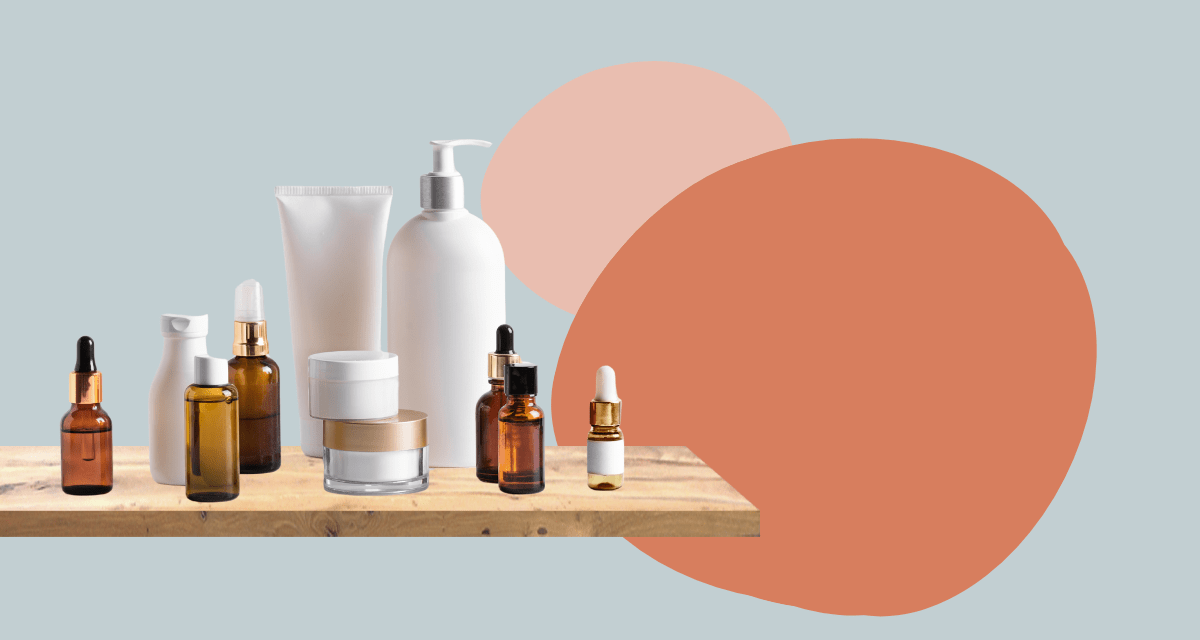
Cosmeceutical Grade Skincare vs Supermarket Skincare: An Honest Look
Australian consumers spend over 1 billion annually on personal care, beauty, and anti-ageing treatments. When it comes to skincare, navigating

A few months ago, we shared how your emotional wellbeing can impact your body, particularly your skin. Many of you found this super insightful which is why today, we’re going to dive deeper into this topic and get down to the nitty-gritty of cortisol and the negative effects it has on our skin.
Cortisol is a stress hormone produced by our adrenal glands. It activates our body’s fight or flight mode during times the body perceives stress or danger. Rewind to thousands of years ago and a cortisol response was integral for survival, like being chased by a man-eating animal.
However, in our day-to-day lives, it’s less about running from a sabertoothed tiger and more about that afternoon Zoom call playing on our minds. Unfortunately, cortisol doesn’t often get the memo that we’re not fighting for our lives and kicks off that fight or flight mode just the same.
Stress is without a doubt, part of all of our lives in some way, shape, or form and to a degree, our body is built to withstand it (hence the caveman reference) but as our lives become busier and the world becomes more and more unpredictable, many of us are seeing our regular stress levels skyrocket. Not only does this make us feel pretty average generally, but prolonged periods of living in cortisol can have negative effects on various body systems, including the skin.
Our skin is our body’s largest organ and is responsible for protecting the body from damaging external factors. When we’re living in cortisol, the skin behaves differently, becomes more reactive, and ultimately, doesn’t respond in ways it ‘should’ or usually does. This includes:
Cortisol stimulates the sebaceous glands in the skin, which produce sebum, an oily substance that lubricates and protects the skin. However, excessive sebum production can lead to clogged pores and acne breakouts.
Cortisol is known as a “collagen killer”. Stress causes a breakdown in collagen, the protein that provides structure and elasticity to the skin. As collagen breaks down, the skin becomes thinner and less elastic, resulting in wrinkles. This naturally occurs as we age, but chronic or prolonged stress speeds up the process.
Cortisol triggers an inflammatory response in the body, which can exacerbate skin conditions such as eczema and psoriasis. In conjunction with increased oil flow, cortisol-induced breakouts may be inflamed and painful to manage. Prolonged exposure to high levels of cortisol can also cause the skin to become thinner and more fragile, resulting in easy bruising and slower healing time.
Stressed-out skin is often dehydrated skin. Excess cortisol inhibits the skin from producing hyaluronic acid and retaining water. This is why flakiness can appear. Paired with collagen loss, the skin can appear less plump and juicy.
To manage cortisol levels and minimise its negative effects on the skin, it is important to adopt healthy lifestyle habits such as getting enough sleep, eating a balanced diet, managing stress through mindfulness techniques and a solid support system and slow yet considered exercise. Activities like walking or yoga are great options during this time as they keep the body calm, but moving, in a purposeful way without spiking cortisol levels (which can occur during cardio or boot camp-style workouts).
What may surprise you is that there’s scientific evidence that skin treatments can have a huge impact on lowering cortisol levels and helping to overcome adrenal fatigue. When we have a facial, particularly one with relaxation elements like our Mindfulness Facials, endorphins are released to counteract the negative effects of stress.
Facials activate our parasympathetic nervous system, which is responsible for transitioning our body from fight or flight to rest and digestion. This promotes relaxation, reduces stress, slows our heart rate, and leaves us feeling calmer and in control. Paired with anti-inflammatory and collagen-inducing ingredients and techniques, regular skin appointments can be an effective, nurturing, and ultra-relaxing way to support the skin during adrenal fatigue.
In summary, stress sucks but unfortunately, it isn’t going anywhere. It’s up to us to have the right tools in our toolkit, and on our skincare shelves, to minimise its negative impact and keep our body in balance during uncertain times.
If you need support in overcoming adrenal fatigue, we’re here to help. Book your in-person or online skin consultation via our website today and let’s welcome brighter and calmer skin days back together.

Australian consumers spend over 1 billion annually on personal care, beauty, and anti-ageing treatments. When it comes to skincare, navigating

When you think about the skin you’re in, what measures do you take to protect it? At Nuovo Skin and

In an ever-changing world, one thing remains consistent: the importance of a dedicated self-care routine that emphasises both mental and
